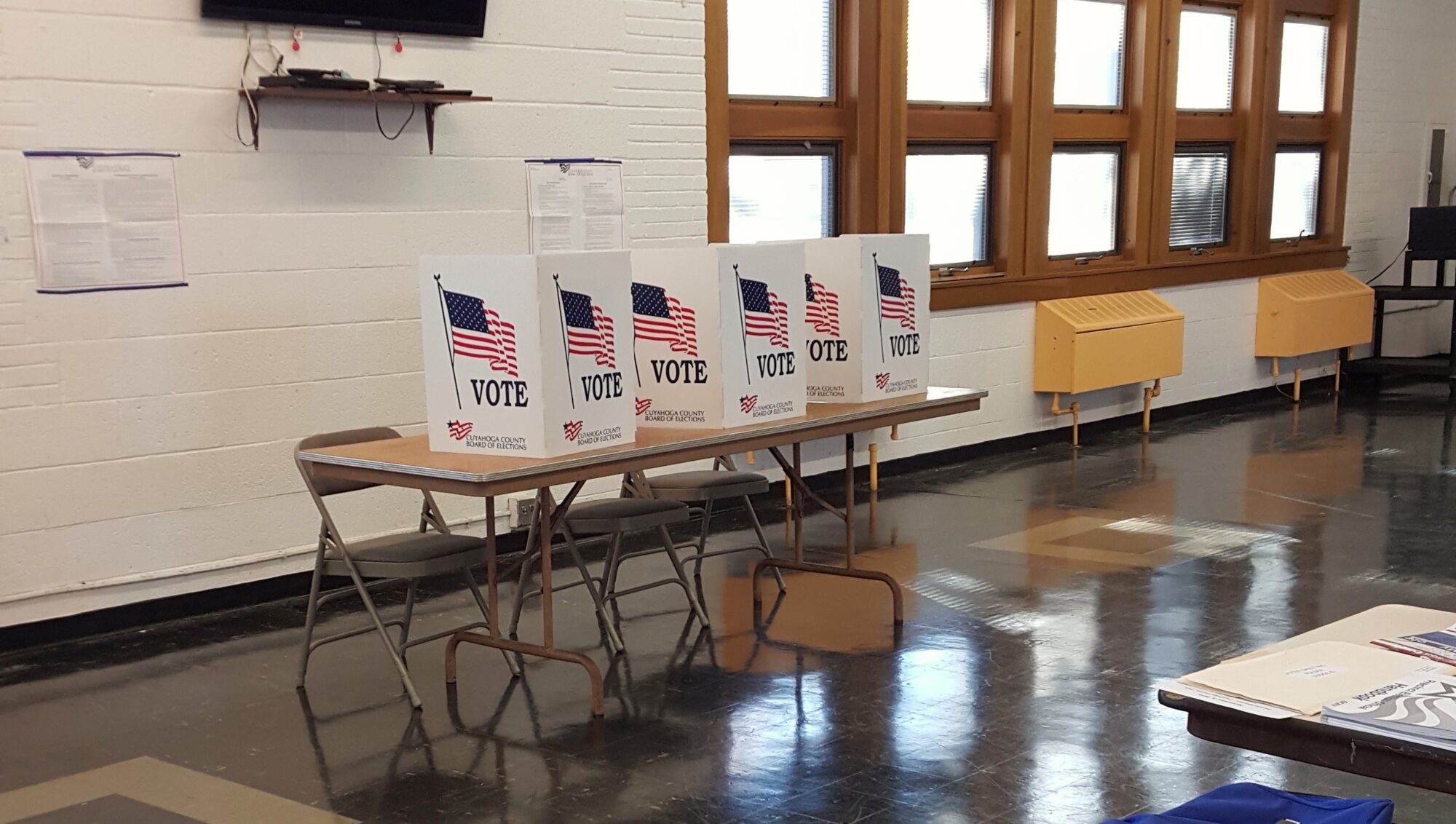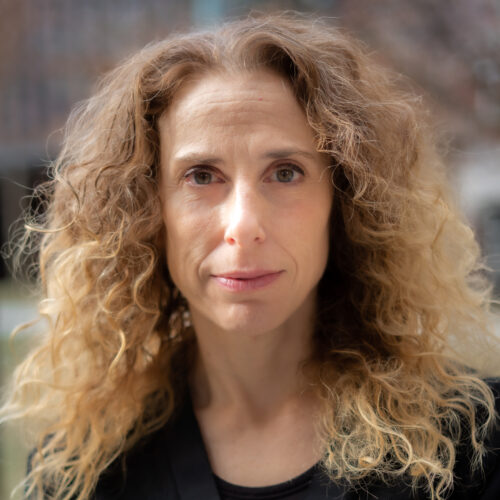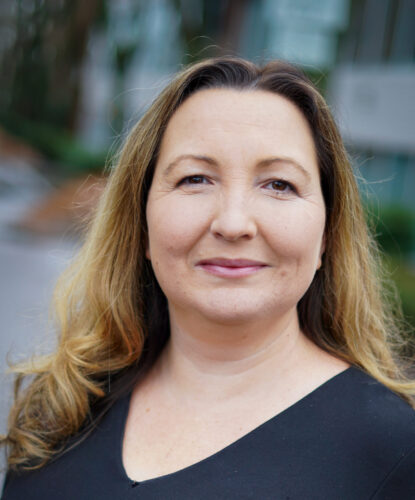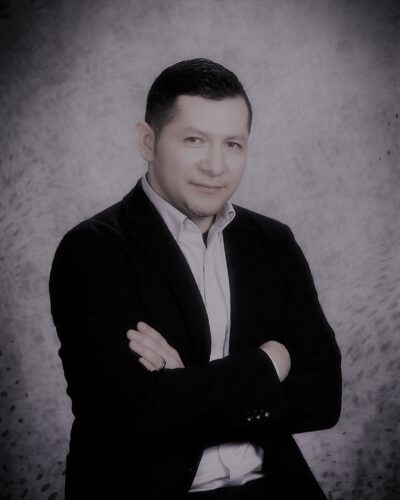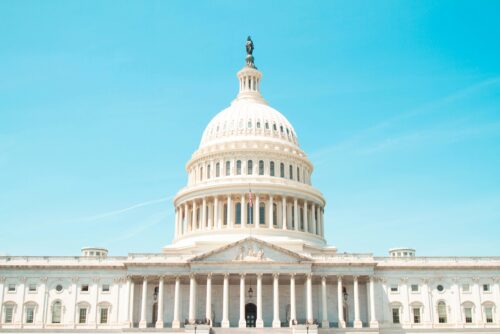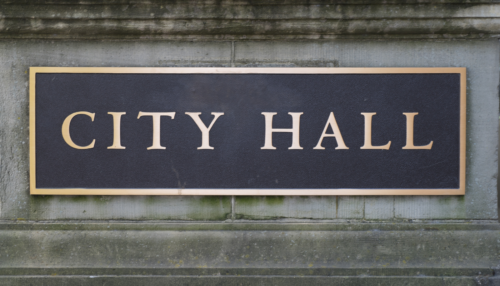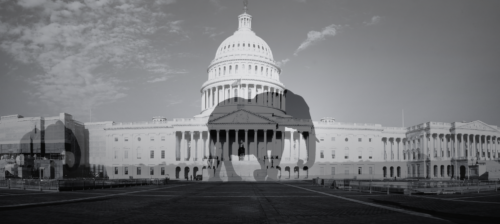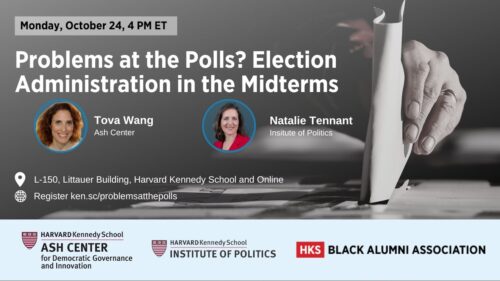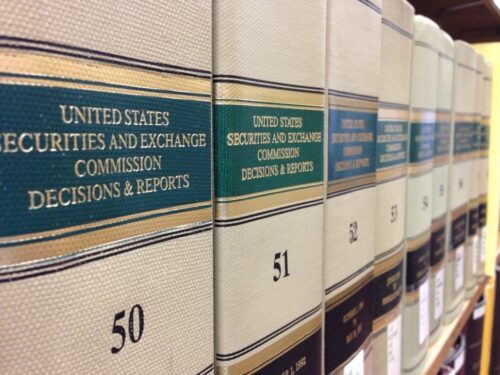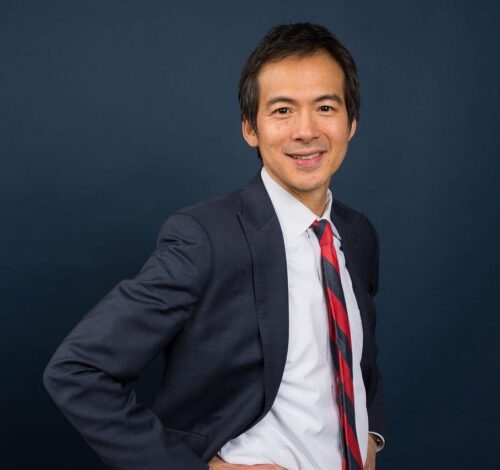
Archon Fung
Director, Ash Center for Democratic Governance and Innovation;
Winthrop Laflin McCormack Professor of Citizenship and Self-Government
Reimagining our political institutions to meet the democratic challenges of today.
Democratic Reform, Electoral College, Civic Engagement, Multiracial Democracy, Sports and Civic Participation
Democracy requires deep and structural changes to survive and grow. The Ash Center’s Reimagining Democracy Program provides scholars and those on the frontlines of our democracy with a space for generating ambitious ideas and practices to make democracy more resilient, responsive, and inclusive.
Director, Ash Center for Democratic Governance and Innovation;
Winthrop Laflin McCormack Professor of Citizenship and Self-Government
Director of Research Projects in Democratic Practice
Senior Associate Director, Center-wide Democracy Initiatives
Program Manager
Program Administrator
In-Person Event
Ash Center Seminar Room 225, Suite 200, 124 Mount Auburn Street
12:00 pm – 1:00 pm EST
Additional Resource
This essay was adopted from a presentation given by Aditi Juneja at the Second Interdisciplinary Workshop on Reimagining Democracy held on the campus of Harvard Kennedy School in December 2023.
Case Study
Additional Resource
This essay was adopted from a presentation given by Nick Couldry at the Second Interdisciplinary Workshop on Reimagining Democracy held on the campus of Harvard Kennedy School in December 2023.
Media Release
In a new paper in Political Analysis, Ben Schneer, Assistant Professor of Public Policy at Harvard Kennedy School, alongside co-authors Maxwell Palmer, Associate Professor, Boston University; and Kevin DeLuca, Assistant Professor, Yale University; present a new method for drawing legislative boundaries, the Define–Combine Procedure.
Commentary
Elected representatives in government don’t always look like the people they serve.
Additional Resource
This essay was adopted from a presentation given by Jon Evans at the Second Interdisciplinary Workshop on Reimagining Democracy held on the campus of Harvard Kennedy School in December 2023.
Additional Resource
This essay was adopted from a presentation given by Eugene Fischer at the Second Interdisciplinary Workshop on Reimagining Democracy held on the campus of Harvard Kennedy School in December 2023.
Commentary
In a new essay, Harvard Kennedy School’s Bruce Schneier goes beyond AI generated disinformation to detail other novel ways in which AI might alter how democracy functions.
Q+A
As divisions within the GOP were on vivid display last month during the tumult over the US House Speaker’s gavel, the Kennedy School’s Steve Goldsmith and UT-Austin’s Ryan Streeter ask whether conservatives should embrace a more aspirational, ideas-driven future?
Video
The Ash Center for Democratic Governance and Innovation, Institute of Politics, and HKS Black Alumni Association invited folks to watch a discussion with former West Virginia Secretary of State and current Institute of Politics Fellow Natalie Tennant, and Ash Center’s Tova Wang for a discussion on running an election in turbulent times.
Commentary
In a new essay, Bruce Schneier and Nathan Sanders argue that AI is poised to dramatically ramp up digital campaigns and outline how accountability measures across platforms, government, and the media can curb risks.
Video
The Ash Center invites you to watch a book talk with contributors to When Democracy Breaks (Oxford, 2023), a new edited volume intended to deepen our understanding of what separates democratic resilience from democratic fragility — by focusing on the latter.
Media Release
In a recently published discussion paper from the Ash Center for Democratic Governance and Innovation at Harvard Kennedy School, Stephen Goldsmith and Ryan Streeter propose a new ideological framework for the conservative movement in the United States centered around aspiration, opportunity, and personal responsibility to help drive upward mobility.
Commentary
In a new essay, Mary Graham argues that transparency measures can help curtail AI-related risks but not overnight — transparency efforts require sustained, long-term engagement and effort.
Commentary
Imagine that we’ve all – all of us, all of society – landed on some alien planet, and we have to form a government: clean slate. How would we govern ourselves?
